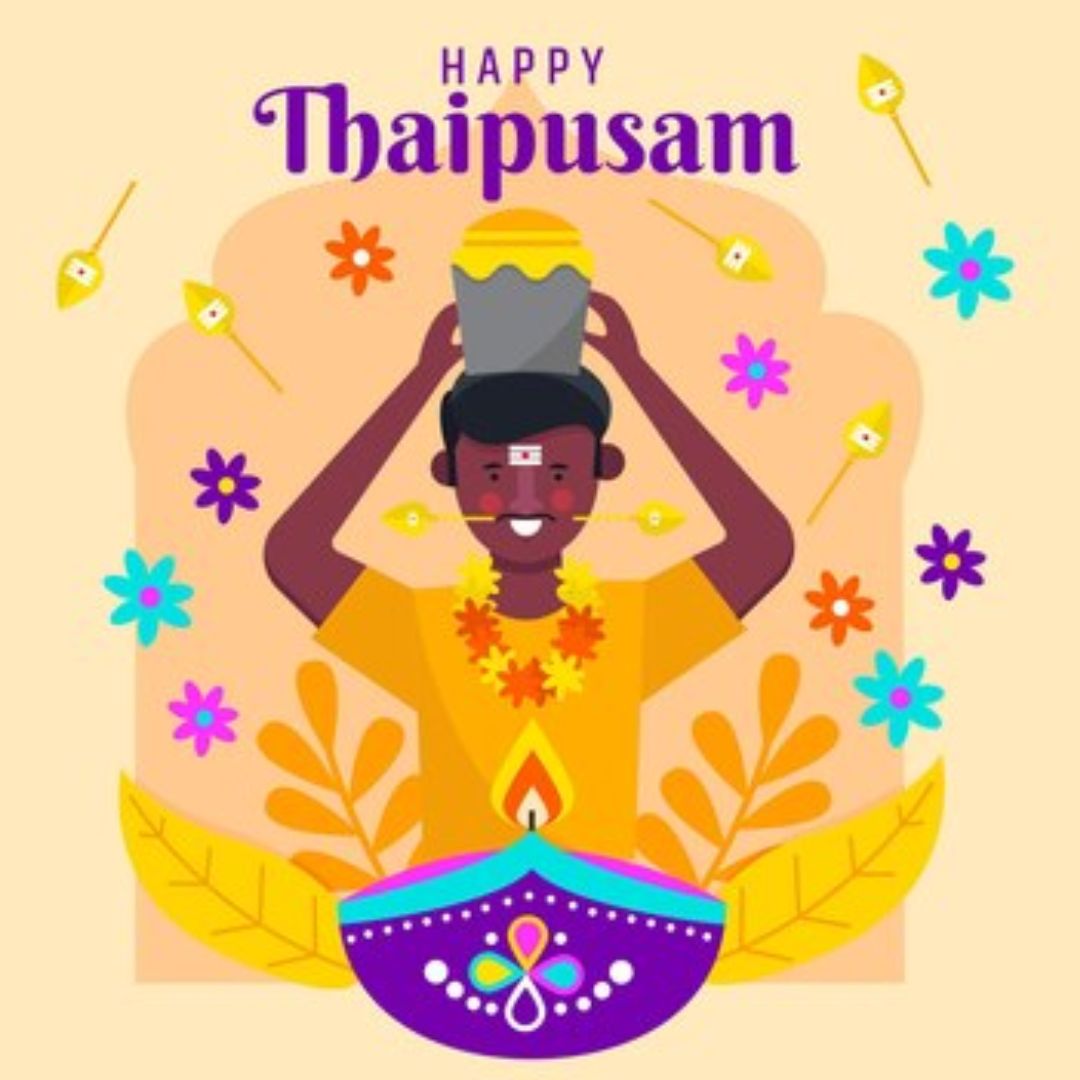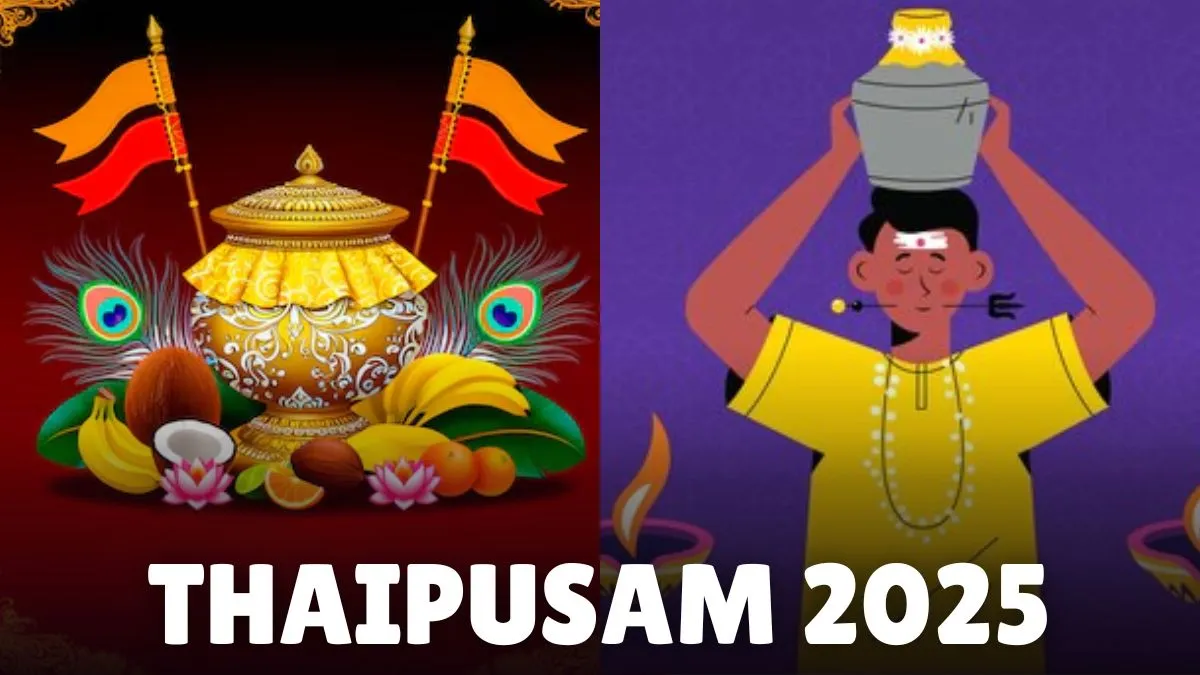- By Kashish Rai
- Tue, 11 Feb 2025 10:07 AM (IST)
- Source:JND
Thaipusam 2025: The Tamil community celebrates Thaipusam, a significant Hindu festival, on the full moon day in January or February. People of all ages participate, with men and women coming together to mark this special occasion. Thaipusam is a key event in the Tamil calendar, promoting community bonding and spiritual growth. Devotees celebrate, reflect and honour their faith and traditions, making it a time for joy, contemplation and togetherness, as they proudly observe their heritage and customs. This year, Thaipusam is being observed on 11th February 2025.
Check out the Poosam Nakshatram timings, significance and rituals below:
Thaipusam 2025: Date And Poosam Nakshatram Timings
- Thaipusam 2025 Date: 11th February 2025, Monday
- Poosam Nakshatram Begins: 06:00 PM, 10th February 2025
- Poosam Nakshatram Ends: 06:34 PM, 11th February 2025
Thaipusam 2025: Significance
The word 'Thaipusam' is derived from the Tamil month 'Thai' and the star 'Pusam', which reaches its highest point during this month. This festival commemorates the triumph of Lord Murugan, the Hindu God of war, over the demon Soorapadman. According to Hindu legends, Goddess Parvati gifted Lord Murugan a powerful spear, 'Vel', to defeat the demon.
On Thaipusam, devotees worship Lord Murugan, seeking his blessings to overcome evil and negative traits in their lives. This festival is mainly celebrated in India's southern states and holds great significance in countries with large Tamil populations, such as Indonesia, Sri Lanka, Malaysia and Singapore. The festival is also observed in other countries, including Mauritius, Guadalupe, Thailand and South Africa, showcasing its global importance and the unity of the Tamil community.

Thaipusam is a significant Hindu festival honouring Lord Murugan, promoting spiritual growth, self-reflection and community bonding, with devotees seeking blessings and forgiveness. (Image Source: Freepik)
Thaipusam 2025: Rituals
Preparations for Thaipusam begin 48 hours in advance, with devotees fasting and praying to purify themselves. Kavadi-bearers, in particular, follow a strict regimen, observing celibacy and eating only pure, satvik food once a day. They also dress in yellow and orange clothing, symbolising their devotion to Lord Murugan. As part of the ceremony, devotees shave their heads and proceed to the temple, engaging in various forms of devotion along the way.
One of the most striking aspects of Thaipusam is the carrying of kavadi, which can range from simple pots of milk to more extreme forms of bodily piercing. Devotees believe that these physical acts of devotion remind them of Lord Murugan's power and grant them endurance. As they make their way to the temple, devotees offer prayers and sing hymns, demonstrating their commitment to their faith.
Upon reaching the temple, devotees lay down their kavadi and offer thanks to Lord Murugan. They pour honey or milk on the deity's idol and offer yellow fruits and flowers. In a remarkable display of faith, devotees who have used skewers and hooks on their bodies have their wounds treated with hot ash, seemingly without experiencing pain or scarring. This reinforces the devotees' belief in the power of Lord Murugan.
Thaipusam is ultimately a day of penance and thanksgiving, with devotees seeking to atone for past sins and fulfil their desires. Lord Murugan is revered as the universal granter of desires, and devotees believe that carrying the kavadi for a set period is necessary to achieve their goals. Whether seeking progeny, success, or healing, devotees come together to celebrate Thaipusam with great pomp and show, attracting tourists and locals alike to witness the vibrant rituals and parades.
(Disclaimer: This is based on general public information. Jagran English does not confirm its veracity. Before adopting any measures, consult an expert in the relevant field.)

